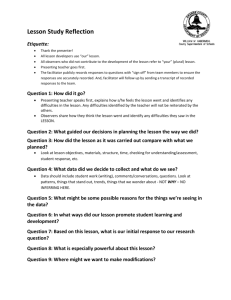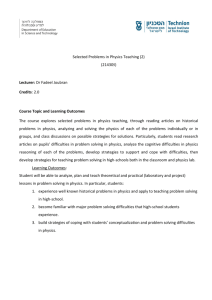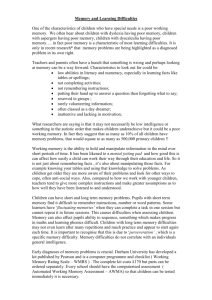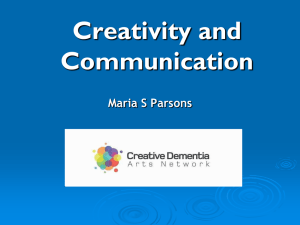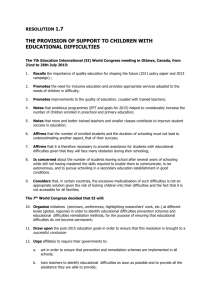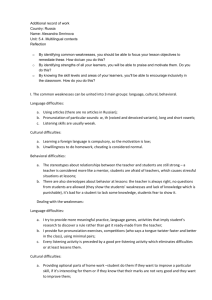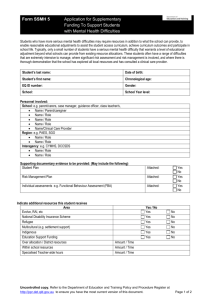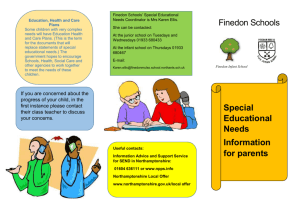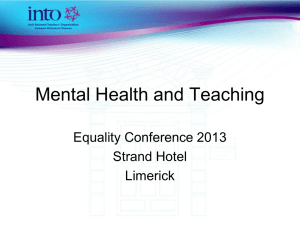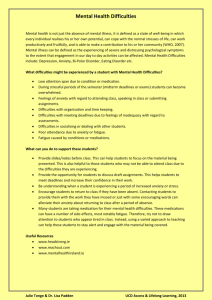Stress in the Workplace 09/21/11
advertisement
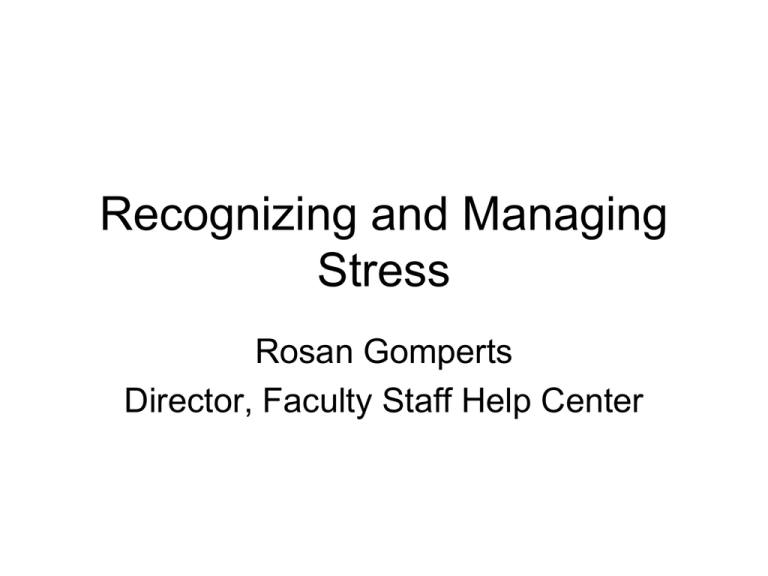
Recognizing and Managing Stress Rosan Gomperts Director, Faculty Staff Help Center Emotional Intelligence • Refers to the capacity for recognizing our own feelings and those of others, for motivating ourselves and for managing emotions well in ourselves and in our relationships. From ‘Working With Emotional Intelligence’ Daniel Goleman Stress Triggers • Work as a microcosm of life: • Family/Relationship Aspects • Overlapping Demands • Working Definition of Stress Fred Luskin Stress Free for Good The balance between what you have to do and the resources you have to do it with Stress Triggers • • • • • • • • • • • • • Health concerns Financial difficulties Relationship difficulties Divorce or changes in personal life Changes in your work life Issues with children/step-children Major change/event in personal life Victim of crime or accident Change in responsibilities Difficulties with boss or co-workers Bereavement Legal issues Family problems Types of Stress • TYPE 1 STRESS - Immediate and identifiable; the bodily sensations from a traffic accident, shocking news etc. the fight or flight response: the effects are typically dramatic and also fairly short-lived • TYPE 2 STRESS - The source may be unclear, not immediate and sometimes not recognizable; chronic conflict or overwork, continuous worry etc. effects are on-going and long-term. Physical Symptoms of Stress Fatigue Headaches Weight gain/loss High BP Nervousness Cold hands/feet Chest pain Diarrhea Nausea Palpitations Angina Upset Stomach Neck aches Shortness of breath Muscle pain Sweaty palms Increased heart rate Perspiration Dizziness Trembling Sleep Disturbances Hypersensitivity Unexplained itching Others??? Cognitive Symptoms of Stress Poor concentration Errors/Accidents Calculation difficulties Decreased decision making Irrational thinking Distortion Memory loss/ability to retain information Forgetfulness Paranoia Limited Attention Span Decreased problem solving ability Others??? Behavioral Symptoms of Stress Anger Withdrawal Compulsive overeating Escapist drinking/drug use Absenteeism/lateness to work Continual use of sedative/tranquilizer Irritability Relationship problems Changes in sleeping habits Increased smoking Emotional outburst Desk Rage Others??? Managing Work Related Stress ACCEPTANCE • Recognize and accept that it is a difficult time -take extra care of self: Positive vs. negative coping strategies Health- notice and respond to stress warning signs/ Healthy life style habits: good diet, adequate rest and exercise Practice self compassion Talk Write – What Else helps? What is Depression • Depression is a common mental disorder that presents with: – Feeling of sadness – Loss of interest or pleasure – Feelings of guilt or low self-worth – Disturbed sleep or appetite – Low energy – Poor concentration – Feeling Hopeless These problems can become chronic or recurrent and lead to substantial impairments in an individual's ability to take care of his or her everyday responsibilities What depression may look like in the workplace: • • • • • • • • Slumping performance at work. Poor timekeeping. Frequent headaches or backaches. Constant tiredness or low energy. Loss of motivation, or drive. Poor concentration, attention to detail. Withdrawal from social contact. Unusual displays of emotion—irritability or tearfulness, outbursts or tantrums. • May look like “a negative attitude” on the job. Research TOO MUCH STRESS IS BAD FOR PEOPLE People who practice these ten exercises did not just get relief from stress but an increased sense of positive well-being, meaning they felt more able to connect with people, had a greater ability to experience pleasure and an improved sense of meaning and purpose. Three Main Concepts • ACCORDING TO LUSKIN’S RESEARCH 1. Know what matters to you in your life and live true to those things 2. Appreciate the beauty and good in your life. 3. Stop complaining about the little stuff Ideas For Coping • • • • Deep Breathing Progressive Muscle Relaxation A Little Easy to Learn Meditation Making an Appointment with a Professional • Taking a MBSR (Mindfulness Based Stress Reduction) course • Others?
